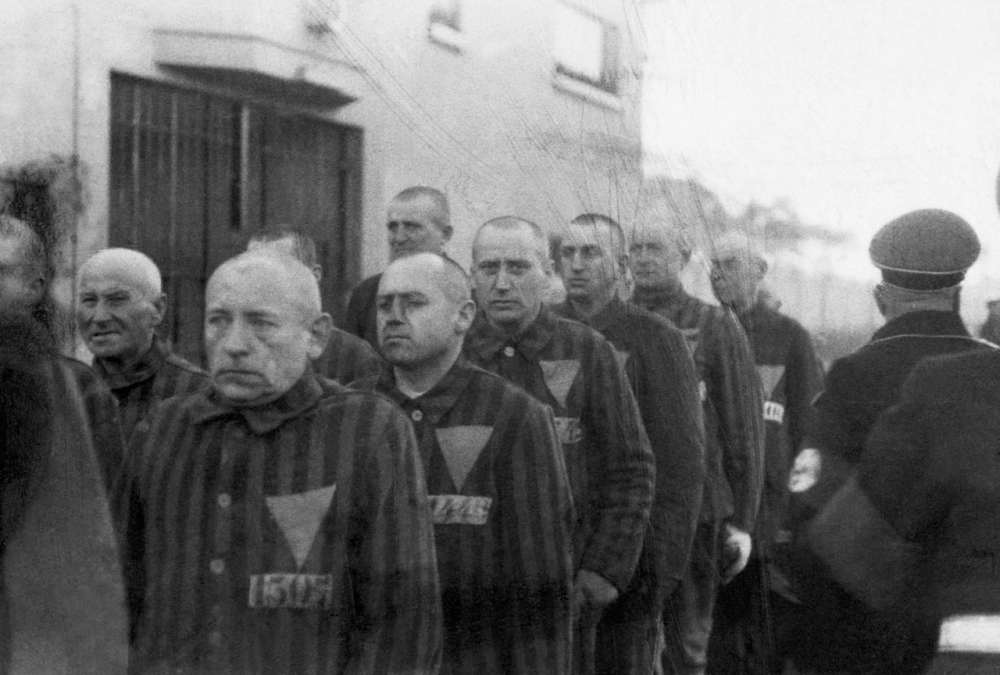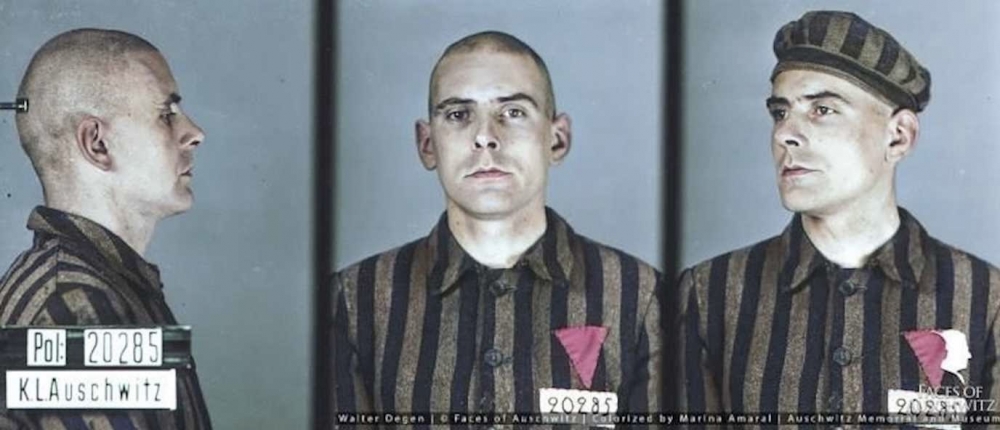What is the Holocaust?
The Holocaust
refers to the genocide of millions of Jewish men, women and children under the Nazi regime.
Between 1941 and 1945, six million Jewish men, women and children were murdered by the Nazis and their collaborators. The Nazis targeted anyone they believed threatened their ideal of a ‘pure Aryan race’, including Roma and Sinti people, disabled people, gay people, political opponents and others.
The Holocaust was a tragic and defining episode of the twentieth century that shook civilisation, undoubtedly changing the course of history.
Why is it important to remember the Holocaust?
This year, the theme for Holocaust Memorial Day is ‘Ordinary people’.
“What is abnormal is that I am normal. That I survived the Holocaust and went on to love beautiful girls, to talk, to write, to have toast and tea and live my life – that is what is abnormal.” - Elie, Holocaust survivor
The Holocaust was, in part, facilitated by ordinary people. Many ordinary people turn a blind eye, believe propaganda, and join murderous regimes. And those who are persecuted, oppressed and murdered in genocide aren’t persecuted because of crimes they’ve committed – they are persecuted simply because they are ordinary people who belong to a particular group.
On Holocaust Memorial Day, people across the UK take part in a national moment of commemoration as iconic landmarks light up across the country. Join in by placing a candle in your window at 4pm, January 27th.
What did the Holocaust mean for LGBTQ+ people?
Even though the process to decriminalise homosexuality had begun in 1929, Adolf Hitler and Nazi Germany brought
in penal reform of Paragraph 175, making homosexuality a felony.Nazi conceptions of race, gender and eugenics
dictated the Nazi regime’s hostile policy on homosexuality. Repression against gay men and lesbians commenced within days of Hitler becoming Chancellor. On 6 May 1933, the Nazis violently looted and closed The Institute for Sexual Science, burning its extensive collection on the streets. Unknown numbers of German gay men and lesbians fled abroad, and others entered into marriages in order to appear to conform to Nazi ideological norms, experiencing severe psychological trauma. The thriving gay culture in Berlin at the time was lost.
According to Holocaust Memorial Day, an estimated 50,000 gay and bisexual men received severe jail sentences in brutal conditions. Most homosexuals were sent to police prisons, rather than concentration camps, where they were exposed to barbaric and inhumane treatment.
Approximately 10-15,000 men who were accused of homosexuality were deported to concentration camps, most of whom died from exhaustion. Many gay and bisexual men were castrated and some subjected to gruesome medical experiments. Collective murder actions were undertaken against gay detainees, exterminating hundreds at a time.
Despite being included in the Paragraph 175 penal code, Lesbians accounted for fewer deaths and prison sentences, but it is thought that may queer women were forced to perform sex acts as a form of 'gay conversion therapy'. Records on trans people during the holocaust are unclear, but with the Nazi treatment of LGBTQ+ people as a whole being so abhorrent, it's likely that trans people faced similar inhumane treatment.
Tragically, almost 100 years later, LGBTQ+ people are still persecuted and murdered simply for being themselves.
How is the theme still relevant today?
The theme 'Ordinary People' prompts us to consider how ordinary people, such as ourselves, can perhaps play a bigger part than we might imagine in challenging prejudice today.
It’s important to remember the Holocaust because it shows how easily lies were spread to create hate. It's easy to draw comparisons between the very early days of anti-Jewish sentiment in the Nazi regime to how UK Ministers and media officials are treating Trans people now, slowly creating unrest and now blocking legislation. Hate crimes against Trans people have seen the biggest increase in the year 2021-22 across all marginalised groups. What are we, as ordinary people doing to combat this misinformation and hate against Trans people now?
Read more about the theme for Holocaust Memorial day 2022 here.
This LGBTQ+ History Month, we will be doing a full deep dive into the Pink Triangle, a now reclaimed symbol initially used to brand men perceived as homosexual in concentration camps. Sign up to our
newsletter to be the first to read it.
Feature Image: TIMEInformation in this article relayed from https://www.hmd.org.uk


